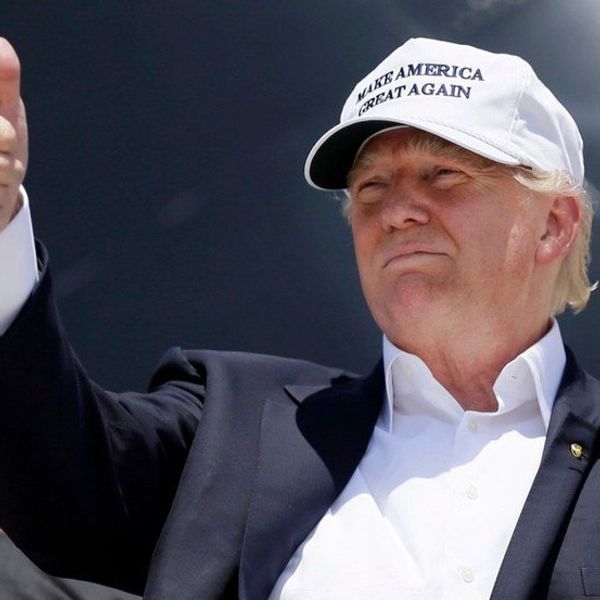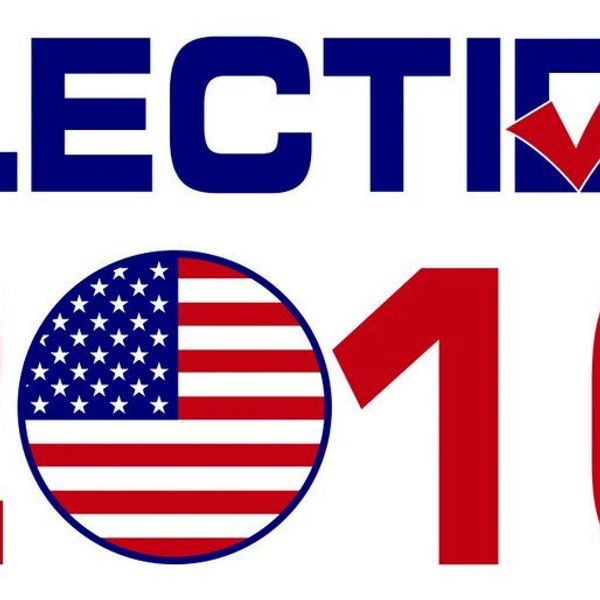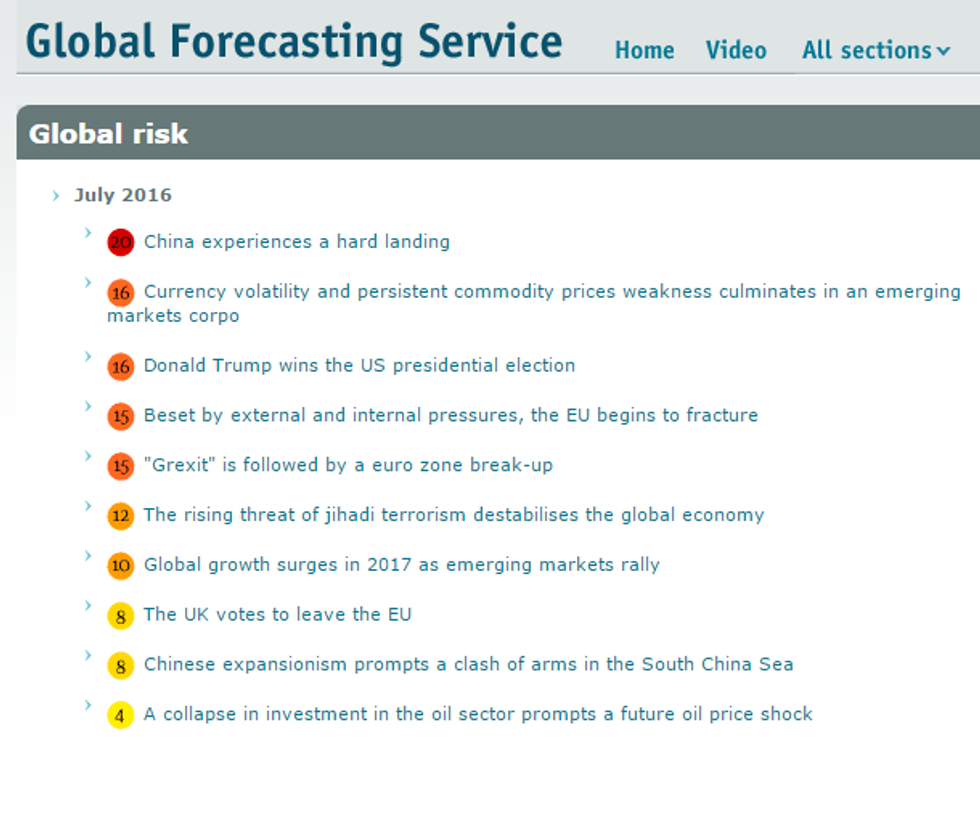We are blessed to live in a nation where you have a voice in your country's leadership. Instead of submitting to a monarch who carries the divine right to do whatever he wants, you choose the people who decide the rules that you live by.
Many other Odyssey writers have written about the importance of voting. For example, Sofia Torrens pointed out that "some people would kill to be able to elect the person who would lead their country. Living in a country where you can make a difference in the government is a huge privilege and most people take that for granted." Voting is a privilege, but it is one with heavy consequences. Elected officials are responsible for implementing the policies and making decisions that shape the nations future.
Some voters think carefully before casting a ballot, asking themselves plenty of questions: which candidate has policies I think will be best for the country? Which candidate is most likely to keep his or her promises? Which candidate am I least likely to complain about over the next four years? To answer these questions, voters often use information they found online, saw on the news, read in a newspaper or heard from their friends. Careful voters consider what qualities are most important to them in a candidate and use this information to decide which candidate possesses those qualities.
Or you could say "screw it!" and automatically vote for someone who seems relatable as if you are a brainless moron who can't think.
In his article "Please Vote Irrationally," my good friend Adrian Moons suggests that "we should throw our brain in an incinerator before voting" because "there is no need to think that you will be able to jump from the facts to the discovery of the better candidate." He suggests that you "lean into your experience and identity [because] your religion, class, ethnicity and a myriad of other factors are the fount of your understanding of a good nation" instead of using "cold, naked rationality."
Adrian should be happy that most voters from *a major American political party* eagerly followed his advice. They nominated Donald Trump as their candidate for President of the United States.
Even among George Fox Odyssey writers, Donald Trump has been criticized from left, right and center of the political spectrum. Trump is an authoritarian fascist with blatantly unconstitutional policies who has openly called for war crimes such as the torture and murder of innocent civilians. As Trump said while explaining that he would not let soldiers disobey illegal orders, "They're not going to refuse me ... it's fine, and if we want to go stronger, I'll go stronger, too. Because, frankly, that's the way I feel."
Republican voters had over a dozen candidates to choose from at the beginning of the nomination process. Most of them were calm, self-controlled, experienced and articulate leaders who understood the complexities of government leadership and policy. The exception was Donald Trump, an angry and impulsive narcissist with no political experience.
If Trump is such a terrible candidate, why was he nominated? Republican voters followed Adrian's advice. They voted irrationally.
Who are "they," though? The average Trump supporter is an old white man with an authoritarian personality:
Individuals with a disposition to authoritarianism demonstrate a fear of "the other" as well as a readiness to follow and obey strong leaders. They tend to see the world in black-and-white terms. They are by definition attitudinally inflexible and rigid. And once they have identified friend from foe, they hold tight to their conclusions ... Trump’s strongman rhetoric may have activated authoritarians. He called for a wall to keep out "the other," for deporting 12 million illegal immigrants, prohibiting Muslims from entering the US, shuttering mosques, establishing a nationwide database to track Muslim Americans, and so on.
Adrian criticized the idea that "the 'educated' voter is expected to examine the issues so thoroughly that he or she discovers the so-called 'better' candidate," calling it a "bad thing" and a "crime" to believe. But this idea accurately describes what happened in the GOP primary, since "[t]he single best predictor of Trump support in the GOP primary is the absence of a college degree." The more educated a Republican voter was, the less likely they were to vote for Trump, which explains his "I love the poorly educated" comment. Less educated Trump supporters probably like that he talks to them at a fourth-grade vocabulary level, almost exclusively using words with two or fewer syllables.
What does it look like for a typical Trump supporter to lean on his experience and identity? His lack of education leads him not to care about policy details. His aversion to "the other" makes him love how Trump openly insults minority groups — women, Mexicans, black people, Jews, you name it — which has been echoed by school bullies nationwide. His love for strong leaders make him admire Trump's fascist tendencies. His black-and-white view of the world make him love Trump's simple language and disdain for nuance. His anger at the government makes him love Trump's inexperience and tendency to insult hundreds of politicians and political organizations.
Instead of using logic to evaluate Trump's actions and policy statements, Trump supporters trusted their feelings and his rhetoric. They trusted his vague promise to "make America great again" instead of examining the 117 policy positions he took within the last fifteen months and concluding that he cannot be trusted to keep his promises because he contradicts almost every concrete promise he makes.
There are disagreements about which Republican candidate was "the best," and more education would not necessarily have eliminated all of those disagreements. But that does not prevent Americans from learning or agreeing about which candidates are better or worse than others. Educated Republicans were more likely to realize that, by any reasonable measure — experience, intelligence, self-control, honesty, emotional stability, prudence, consistency, being viewed favorably, et cetera — Trump was one of the worst candidates in the Republican primaries. He would be the most reckless President in history, according to Republican security experts. He does not care about the truth. Risk analysts have even called him more dangerous than terrorism for the global economy:
Yet Trump's ability to manipulate voters' feelings let him yell and insult his way to the top, culminating in a consistent theme of feelings over facts during his nomination ceremony.
Adrian encourages everyone to "save yourself some stress and effort by throwing your rational brain out the window come election time. You’ll thank me later." This is exactly the wrong advice to give to the electorate that nominated Donald Trump as a candidate for President of the United States. More education and rational thinking could have prevented Trump's nomination, but since it did not, we must hope that it prevents his election to one of the most powerful positions in the world.
You don't have to be an "Enlightenment rationalist," as Adrian puts it, to realize that voting based on vague feelings about your experience and identity instead of facts is dangerous. Vote for a candidate who is intelligent, experienced, qualified, calm, reasonable and who has policies that you think are best for the country. Use your brain to predict who would have the best response to unexpected situations. Use your rational capacities to discern who is most likely to leave the country in a better state than they found it and give its people more freedom, happiness, safety and prosperity.
Rationality and intelligence distinguish our species from all of the others. They are the only reason that you can read this article — or anything else, for that matter. They have given us something that no other species has ever achieved: progress in civilization. Don't throw these gifts aside when you decide the fate of your country.






















